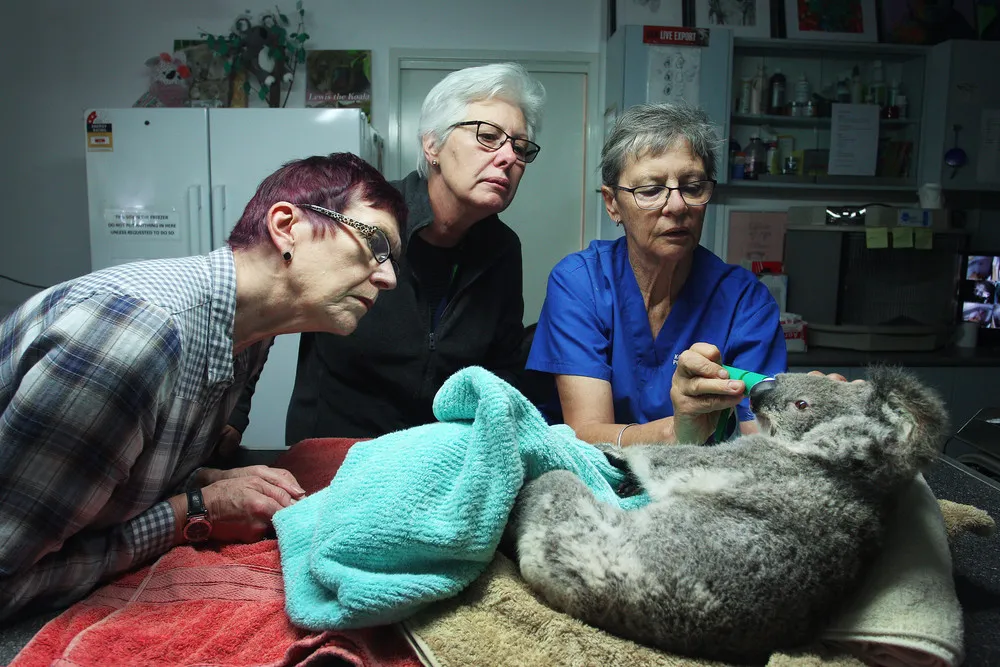|
Clinical Director Cheyne Flanagan (R) and hospital volunteers Rita Saunders and Gaby Rivett and treat a juvenile female koala named “Oxey Kylie” for car accident trauma at Port Macquarie Koala Hospital on September 15, 2020, in Port Macquarie, Australia. Established in 1973 the Port Macquarie Koala Hospital has 150 volunteers, a specialised treatment room, intensive care unit and rehabilitation yards. The team were instrumental in treating bushfire affected koalas during what has become known as Australia's Black Summer. A New South Wales parliamentary inquiry released in June 2020 has found that koalas will become extinct in the state before 2050 without urgent government intervention. Making 42 recommendations, the inquiry found that climate change is compounding the severity and impact of other threats, such as drought and bushfire, which is drastically impacting koala populations by affecting the quality of their food and habitat. The plight of the koala received global attention in the wake of Australia's devastating bushfire season which saw tens of thousands of animals killed around the country. While recent fires compounded the koala's loss of habitat, the future of the species in NSW is also threatened by continued logging, mining, land clearing, and urban development. Along with advising agencies work together to create a standard method for surveying koala populations, the inquiry also recommended setting aside protected habitat, the ruling out of further opening up of old-growth state forest for logging and the establishment of a well-resourced network of wildlife hospitals in key areas of the state staffed by suitably qualified personnel and veterinarians. The NSW Government has committed to a $44.7 million koala strategy, the largest financial commitment to protecting koalas in the state's history. (Photo by Lisa Maree Williams/Getty Images)
|

